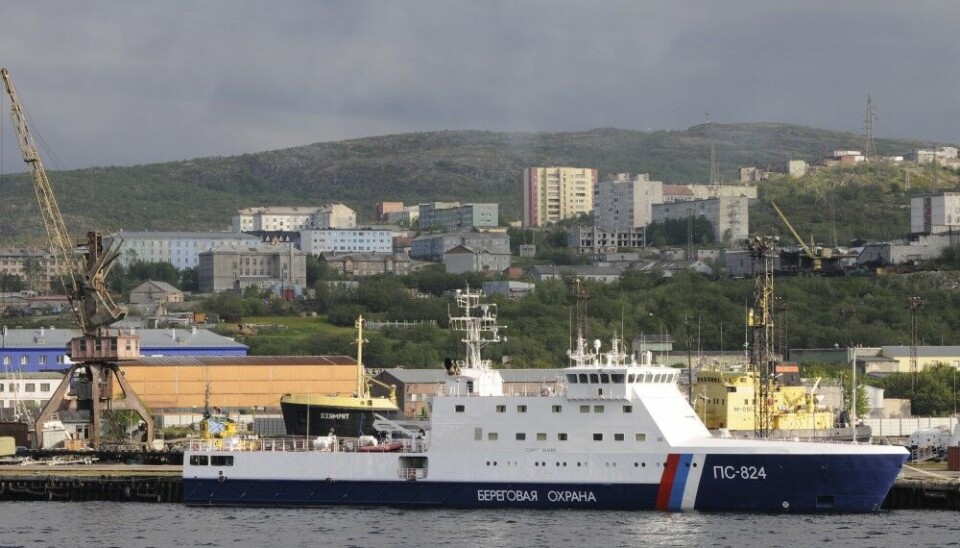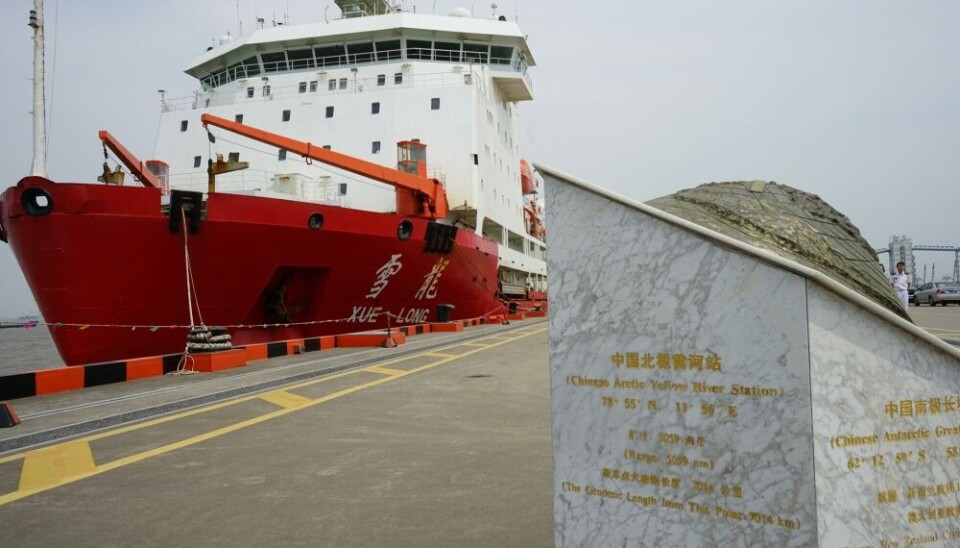
FSB signs maritime security cooperation with China in Murmansk
A groundbreaking memorandum signed between the Chinese Coast Guard and FSB’ Border Guard Service opens for extensive cooperation in the Barents Sea and Arctic waters.
The memorandum signed in Murmansk opens for cooperation in law enforcement at sea, regional and federal media reports on Monday.
Under the new agreement, the two countries highlight joint efforts to combat terrorism, illegal migration, fighting smuggling of drugs and weapons, as well as stopping illegal fishing, Head of FSB Border Guard Service, Vladimir Kulishov, said to Vesti, the TV news by GTRK Murman.
He explained that Russia had to find new partners as the coast guard cooperation with the seven other Arctic nations is halted.
The Arctic Coast Guard Forum, currently chaired by Russia, had a plan to conduct a joint multilateral maritime exercise this year. With no participants from Norway, Sweden, Finland, Iceland, Denmark, Canada and USA, the FSB decided to invite China as an observer, Kulishov said. The exercise takes place out of Murmansk on Tuesday.
Next step will be for China to participate in future exercises.
In a statement recorded by the Defense Ministry’s TV channel Zvezda, the FSB commander added that joint exercises with the Chinese Coast Guard, stipulated in the memorandum, will take place in the near future.
“I’m sure that our cooperation will only be strengthened,” Kulishov said.
Research Professor Elana Wilson Rowe with the Norwegian Institute of International Affairs (NUPI) is not surprised by the presence of Chinese Coast Guard officials in Murmansk “given today’s geopolitical environment.”
She says the memorandum demonstrates the seriousness of Russian-Chinese cooperation.
“It is noteworthy that the Russian Coast Guard is organized under the Federal Security Services and a shared memorandum does demonstrate a level of seriousness in flagging the potential of Russia and China’s cooperation in the soft security/security sphere,” she says to the Barents Observer.
“The devil will be in the details,” she underlines and adds. “Capacity building on environmental security-related issues via shared table-top exercises would have a different optic and require different degrees of coordination than a major joint exercise.”
“Observers were shocked and concerned about the US Coast Guard’s discovery of Russian and Chinese navy vessels appearing together off the coast of Alaska last year. Although the status and remit of the Coast Guard differs, more cooperation in this sphere does provide an added data point suggesting that Russian skepticism towards cooperating with China in the security or soft security spheres is fading,” Elana Wilson Rowe says.
Near-Arctic state
China has declared itself as a ‘near-Arctic’ state, and public statements have made it clear that the country intends to push for a greater role in Arctic governance.
Several voyages with scientists are conducted with the research icebreaker “Snow Dragon”, but for now there have been few signs of China trying to enter the Arctic with security hardware like navy vessels or coast guard personnel.

In 2019, the Chief of Norway’s Intelligence Service said “we must be prepared for clearer Chinese presence in our neighbourhood.”
The statement came after the Chinese navy Commander visited the Russian Northern Fleet’s Headquarters in Severomorsk on Russia’s Navy Day the year before.
When Chinese leader Xi Jinping visited Vladimir Putin in Moscow last month, the two talked Arctic cooperation and highlighted energy, technology and infrastructure as key issues.
Also, cooperation on shipping along the Northern Sea Route was outlined at the meeting.















